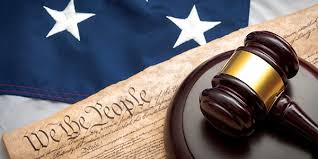Ineffective Assistance of Counsel - Misrepresented in the Court of Law
How do we address this in the Post-Conviction Relief proceedings?
First, the defendant must show that counsel's performance was deficient. This requires showing that counsel made errors so serious that counsel was not functioning as the "counsel" guaranteed the defendant by the Sixth Amendment.
Second, the defendant must show that the deficient performance prejudiced the defense. This requires showing that counsel's errors were so serious as to deprive the defendant of a fair trial, a trial whose result is reliable. Strickland v. Washington , 466 US 668, 104 S.Ct. 2052, 80 L.Ed. 2d 674 (1984).Representation of a criminal defendant entails certain basic duties. Counsel's function is to assist the defendant, and hence counsel owes the client a duty of loyalty, a duty to avoid conflicts of interest. From counsel's function as assistant to the defendant derive the overarching duty to advocate the defendant's cause and the more particular duties to consult with the defendant on important decisions and to keep the defendant informed of important developments in the course of the prosecution. Counsel also has a duty to bring to bear such skill and knowledge as will render the trial a reliable adversarial testing process.
In certain Sixth Amendment contexts, prejudice is presumed. Actual or constructive denial of the assistance of counsel altogether is legally presumed to result in prejudice. So are various kinds of state interference with counsel's assistance. Prejudice in these circumstances is so likely that case-by-case inquiry into prejudice is not worth the cost. Moreover, such circumstances involve impairments of the Sixth Amendment right that are easy to identify and, for that reason and because the prosecution is directly responsible, easy for the government to prevent.
One type of actual ineffectiveness claim warrants a similar, though more limited, presumption of prejudice. In Cuyler v. Sullivan , the Court held that prejudice is presumed when counsel is burdened by an actual conflict of interest. In those circumstances, counsel breaches the duty of loyalty, perhaps the most basic of counsel's duties. Moreover, it is difficult to measure the precise effect on the defense of representation corrupted by conflicting interests. Given the obligation of counsel to avoid conflicts of interest and the ability of trial courts to make early inquiry in certain situations likely to give rise to conflicts, see, e.g., Fed.Rule Crim.Proc. 44(c), it is reasonable for the criminal justice system to maintain a fairly rigid rule of presumed prejudice for conflicts of interest. Even so, the rule is not quite the per se rule of prejudice that exists for the Sixth Amendment claims mentioned above. Prejudice is presumed only if the defendant demonstrates that counsel "actively represented conflicting interests" and that "an actual conflict of interest adversely affected his lawyer's performance."
Conflict of interest claims aside, actual ineffectiveness claims alleging a deficiency in attorney performance are subject to a general requirement that the defendant affirmatively prove prejudice. The government is not responsible for, and hence not able to prevent, attorney errors that will result in reversal of a conviction or sentence. Attorney errors come in an infinite variety and are as likely to be utterly harmless in a particular case as they are to be prejudicial. They cannot be classified according to likelihood of causing prejudice. Nor can they be defined with sufficient precision to inform defense attorneys correctly just what conduct to avoid. Representation is an art, and an act or omission that is unprofessional in one case may be sound or even brilliant in another. Even if a defendant shows that particular errors of counsel were unreasonable, therefore, the defendant must show that they actually had an adverse effect on the defense.

